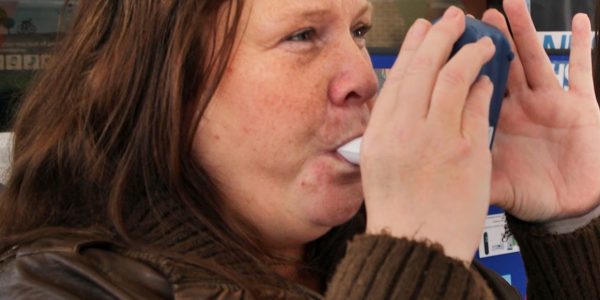The Automated Sensing and Predictive Inference for Respiratory Exacerbation (ASPIRE) programme, which aims to help patients monitor chronic pulmonary disorder (COPD), will receive a £1.5 million grant from the government’s Engineering and Physical Sciences Research Council (EPSRC).
The ASPIRE programme aims to develop ‘intelligent’ systems for people to use in their own homes, by wearing lightweight healthcare sensors that can track vital signs. These systems can track vital signs and fuse the information with data from the patient’s encounters with GPs and hospital care.
“Healthcare needs to change, such that these evolving needs of patients can be met in a sustainable manner, and technology has a key enabling role in delivering this change,” said ASPIRE’s clinical lead Dr David Clifton.
“ASPIRE seeks to create an exemplar of an integrated healthcare-delivery system, in which care is provided for patients suffering from lung disease (COPD) in the home is provided in a ‘smart’, joined-up manner – which requires intelligent systems based on machine learning.”
“It will be piloted in the NHS in Oxfordshire, with our NHS collaborators at the Oxford University Hospitals NHS Foundation Trust (which provides hospital care) and the Oxford Health NHS Trust (which provides other care),” he said.
£10 million funding for healthcare technologies
The £1.5 million funding for the ASPIRE programme is part of a larger package of £10 million in funding for eight new intelligent healthcare technologies.
“Using these new technologies provides ways of gauging a patient’s health in real-time and detecting any deterioration quickly,” said Professor Philip Nelson, the EPSRC Chief Executive.
“This will help people remain in their homes for longer, avoid congestion and delay and mean treatment can be targeted quickly and when it can be most appropriate and effective.”
Oxfordshire ‘digital health cluster’
Meanwhile, a report commissioned by the Oxford Academic Health Science Network, Oxford University and Oxford University Innovation found that Oxfordshire has become a ‘digital health cluster’, and made recommendations to further develop the area’s digital health infrastructure.
“Oxford has developed substantial experience of using wearable systems to monitor the elderly and sick, and ASPIRE builds on this long and successful history of collaboration with the NHS,” commented Professor Clifton.
“The NHS has recognised the urgent need to ‘digitise’ its systems, and to shift to a data-driven approach in which information concerning individuals is accumulated to improve the manner in which they are treated,” he added.
The team working on the project includes healthcare technology specialists and clinical experts that will collaborate with Microsoft, Oxford University Hospitals NHS Trust and Oxehealth, ensuring that resources will be used in ‘an optimal manner’.
Original source: Health IT Central
Published: 4 January 2017

